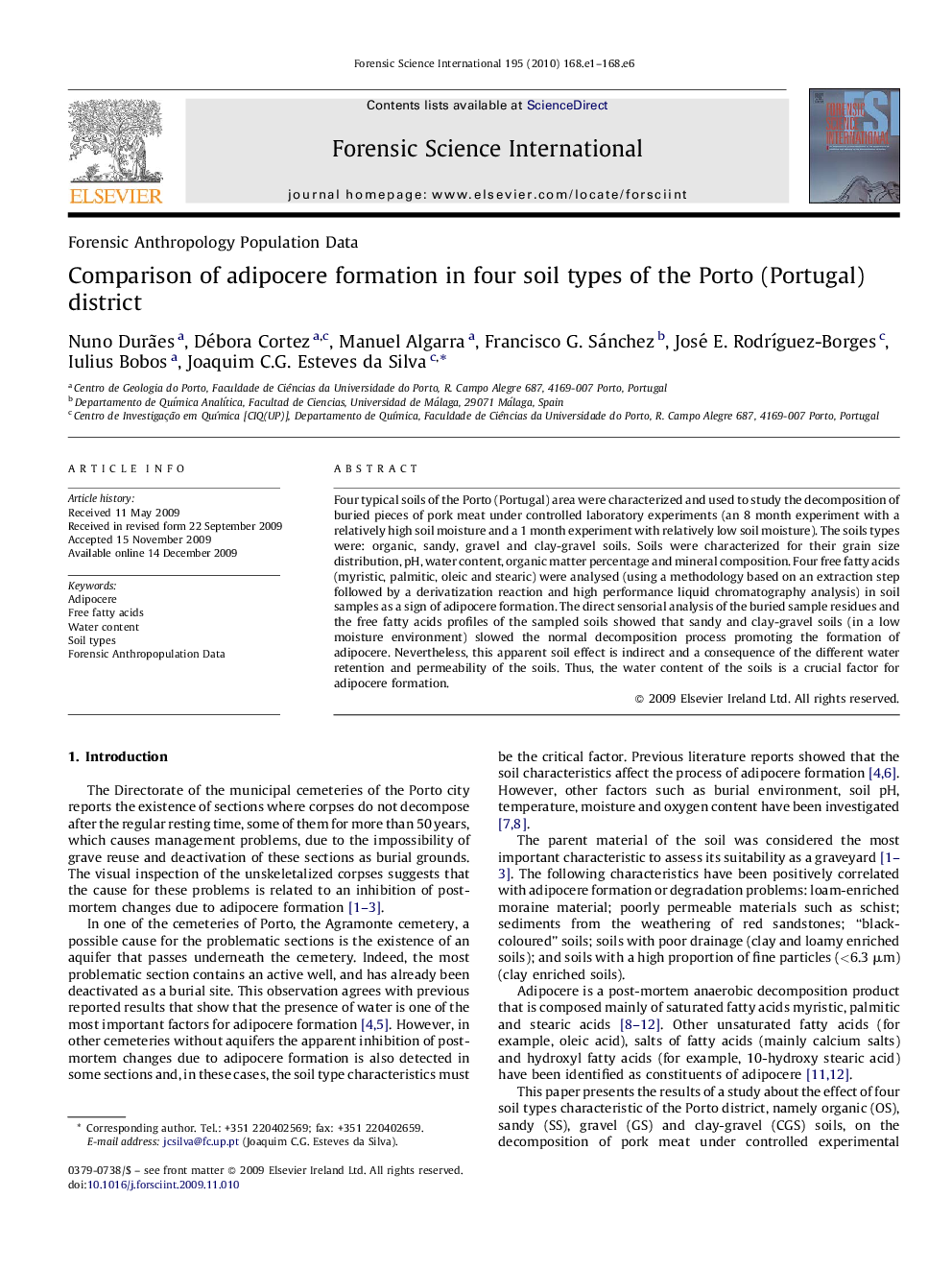| Article ID | Journal | Published Year | Pages | File Type |
|---|---|---|---|---|
| 97213 | Forensic Science International | 2010 | 6 Pages |
Abstract
Four typical soils of the Porto (Portugal) area were characterized and used to study the decomposition of buried pieces of pork meat under controlled laboratory experiments (an 8 month experiment with a relatively high soil moisture and a 1 month experiment with relatively low soil moisture). The soils types were: organic, sandy, gravel and clay-gravel soils. Soils were characterized for their grain size distribution, pH, water content, organic matter percentage and mineral composition. Four free fatty acids (myristic, palmitic, oleic and stearic) were analysed (using a methodology based on an extraction step followed by a derivatization reaction and high performance liquid chromatography analysis) in soil samples as a sign of adipocere formation. The direct sensorial analysis of the buried sample residues and the free fatty acids profiles of the sampled soils showed that sandy and clay-gravel soils (in a low moisture environment) slowed the normal decomposition process promoting the formation of adipocere. Nevertheless, this apparent soil effect is indirect and a consequence of the different water retention and permeability of the soils. Thus, the water content of the soils is a crucial factor for adipocere formation.
Related Topics
Physical Sciences and Engineering
Chemistry
Analytical Chemistry
Authors
Nuno Durães, Débora Cortez, Manuel Algarra, Francisco G. Sánchez, José E. RodrÃguez-Borges, Iulius Bobos, Joaquim C.G. Esteves da Silva,
